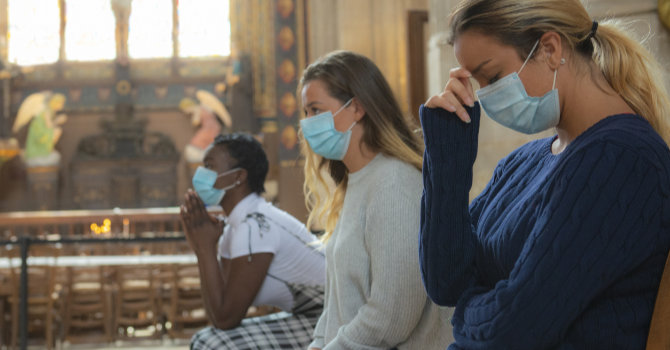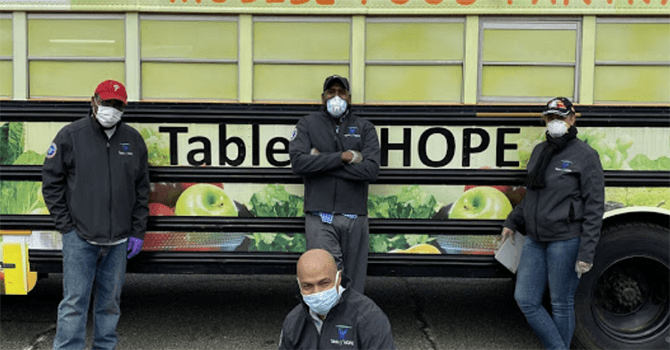The COVID-19 pandemic suddenly changed many things, including the ways faith communities worship, celebrate rituals, serve their communities and conduct basic business.
One year later, in the midst of another Lent, Faith & Leadership asked 12 church and ministry leaders to step back from the daily challenge of their work and reflect on a question that looks both to the recent past and to the future: “A year into the pandemic, what lessons have you learned?”
Contributors
Click a name to jump directly to that contributor's response.
• Adam Russell Taylor
• Tyler Sit
• Kara Powell
• Sidney Williams Jr.
• Elizabeth Conde-Frazier
• Jonathan Wilson-Hartgrove
• Frank Yamada
• Jessica Young Brown
• David King
• Robert Rueda
• Paul Baxley
Practitioners from across the country who preach, teach, guide organizations and influence others offered a variety of answers: COVID-19 has laid bare the inequalities in our society. It has shown that even small congregations can mobilize an army of volunteers to care for the least of these. It has challenged houses of worship to be more forthcoming in sharing where contributors’ money is going.
A dozen perspectives but one overriding theme: The church world faces a moral reckoning, and it cannot run and hide; for whether this crisis or another, there will be trials that test faith communities’ professions of faith and love.
‘The danger of selfish individualism’
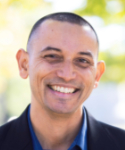 Adam Russell Taylor
Adam Russell Taylor
PRESIDENT
SOJOURNERS
WASHINGTON, D.C.
Adam Russell Taylor, the president of the social justice-focused ministry Sojourners, believes that COVID-19 has been apocalyptic, as that word is defined by its Greek root, “to reveal and lay bare.”
After one year, what the pandemic has laid bare -- a health care system that leaves behind those who are racially and economically marginalized, a nation polarized to the degree that wearing a mask provokes anger and division -- all of this is deeply disappointing, Taylor said.
“It’s the danger of selfish individualism,” he said, and offered instead an example of the faith perspective we should be taking: “Wearing a mask is a testament to Christian discipleship. It is an expression of the golden rule.”
Rather than a lesson, Taylor believes, the pandemic leaves us with a challenge in post-COVID America: to care first for the least of these -- the elderly, minorities, essential workers -- and to see our lives and futures intertwined as articulated in 1 Corinthians 12. “If one member suffers, all suffer together with it; if one member is honored, all rejoice together with it” (1 Corinthians 12:26 NRSV).
‘Compounding traumas and crises’
 Tyler Sit
Tyler Sit
FOUNDER, SENIOR PASTOR
NEW CITY CHURCH
MINNEAPOLIS, MINNESOTA
For Tyler Sit, calling on churches to respond in a crisis extends beyond COVID-19. New City Church is within walking distance of where George Floyd, a 46-year-old Black man, was killed while being arrested by Minneapolis police officers.
Sit said the lessons learned from both the pandemic and the unrest following Floyd’s death on May 25, 2020, apply to whatever comes next. And there will be a “next,” he said, citing the insurrection at the U.S. Capitol as the latest of these “compounding traumas and crises.”
Going forward, Sit said, the church must offer a place to grieve, in consoling a church member who lost a parent to the virus, for example, or hosting an online prayer vigil after an event like Floyd’s death. And it must expand its use of social media -- “social media on steroids,” he called it -- to build unity.
It’s not enough to announce the time of the Sunday worship service on Facebook. There should be an active platform for people to share real-time communication -- “My mother was just diagnosed with COVID” or “If I’m not back from the protest by 5 p.m., call my cell.” New City, a small, multiethnic United Methodist congregation launched in 2017, has received a $40,000 grant to expand community building online.
Life has been a whirlwind at New City Church. The need to be ready for the next storm is clear. “We’re not going to return to normal,” Sit said.
‘I don’t want to go back’
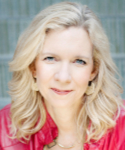 Kara Powell
Kara Powell
EXECUTIVE DIRECTOR
FULLER YOUTH INSTITUTE
PASADENA, CALIFORNIA
Kara Powell’s focus is on the faith development of youth. A year into the pandemic, the head of the Fuller Youth Institute hears not just teenagers but also adults articulating perhaps the one bright spot in all this darkness. With no soccer practice for kids to rush to, with time suddenly at our disposal to read, take a walk, savor the quiet, people of all ages are saying, “I don’t want to go back to the busyness of my pre-pandemic schedule.”
With much of our typical to-do lists eliminated, the challenge and opportunity for churches is to make this free time quality time. We can do so, Fuller said, by focusing on relationships and service.
We can find ways to build more intimacy into small, online youth groups. Keep a sharp eye out for those kids succumbing to loneliness and worse during this time of isolation. Harness social media for good, not gossip.
What if the teens in our church volunteered with the social media ministry? Found ways to serve their neighbors? The Powells, including their two teens, help clean a local food distribution center every other Thursday.
Pandemic or not, Powell said, young people ask three questions: “Who am I? Where do I fit in? What difference can I make?”
As Year Two of COVID-19 looms, Powell said, there’s time to search for answers.
‘You can’t keep making excuses’
 Sidney Williams Jr.
Sidney Williams Jr.
PRESIDENT/CEO
CROSSING CAPITAL GROUP
SENIOR PASTOR
BETHEL CHURCH OF MORRISTOWN
MORRISTOWN, NEW JERSEY
Whether preaching to his congregation or helping small churches make a social impact, Sidney Williams’ message is informed by COVID-19.
“You can’t keep making excuses for not doing anything,” he said. “You can do something.”
Williams’ focus through Crossing Capital Group involves helping congregations harness social media platforms -- Twitter, Instagram and others -- to mobilize volunteers to serve those most affected by COVID-19.
His own church is a powerful illustration. With 200 members, it has recruited 2,000 volunteers (non-church members) to distribute food and household essentials, tutor children after school, help staff a COVID-19 testing center at the church and provide rides to the hospital for people getting the vaccine. In all, his church is serving 2,000 families a week, up from 200 families before the pandemic.
This involves volunteers recruiting volunteers, Williams said. And with the elderly and poor often left behind digitally -- the digital divide “is still a thing,” he noted -- the church is reaching out to people the old-fashioned way. “We’re picking up the phone and calling,” he said.
Nearing the end of this first year of life in a pandemic, a bittersweet image sticks in Williams’ mind: folks trudging through the knee-deep New Jersey snow to get to the church, where volunteers stand ready to distribute groceries.
‘Working through the communal’
 Elizabeth Conde-Frazier
Elizabeth Conde-Frazier
COORDINATOR OF RELATIONS WITH THEOLOGICAL ENTITIES
ASSOCIATION FOR HISPANIC THEOLOGICAL EDUCATION
ORLANDO, FLORIDA
For the Latino community, Elizabeth Conde-Frazier said, online teaching and learning can be effective, but it leaves the “relational and embodied part,” as she put it, wanting.
Connecting with each other, through the Holy Spirit, is essential. That’s the lesson Conde-Frazier, who works with the Association for Hispanic Theological Education, will carry forward as virtual education continues for who knows how long.
“There is a personalism in our [Latino] culture,” she said. “The Holy Spirit is working through the communal.”
How can this connection be made as students old and young -- indeed, theological education begins “when we sing hymns to a child in the womb,” she said -- all sit in front of their laptops, alone, miles apart?
By creating space for it to happen, Conde-Frazier said. We can begin with silence. Invite prayer. Share reflective readings. Be present to one another via Zoom. Look -- really look -- at each other, and ask, “How are you doing?”
The mission? She said it’s to bring people together regardless of age and background, helping them appreciate that we are one in our pandemic struggles, and one in our journey to hope and healing.
‘Charity isn’t enough’
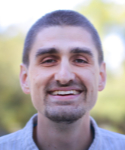 Jonathan Wilson-Hartgrove
Jonathan Wilson-Hartgrove
AUTHOR, THEOLOGIAN
DURHAM, NORTH CAROLINA
In the Black church and community where Jonathan Wilson-Hartgrove works for social justice -- St. John’s Missionary Baptist in Durham’s Walltown neighborhood -- COVID-19 claimed 11 people in January 2021.
“The only in-person gatherings we’ve had have been at the graveyard,” he said. “This virus has spread through all the places where our society is broken.”
That is the lesson he will carry forward; while the effort to care for the immediate needs of the sick and poor is impressive, God is calling us to a deeper place.
“Charity is important, but charity isn’t enough,” Wilson-Hartgrove said. “Something like this [COVID-19] should call us to look at structural inequalities that shouldn’t be tolerated.”
Health care available to all. A minimum wage workers can live on. An affordable home.
“This is certainly the season to hear that call,” he said.
‘The meaning of bodily presence’
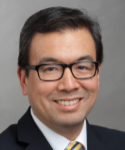 Frank Yamada
Frank Yamada
EXECUTIVE DIRECTOR
THE ASSOCIATION OF THEOLOGICAL SCHOOLS
THE COMMISSION ON ACCREDITING
PITTSBURGH, PENNSYLVANIA
Seminaries have long asked the question, “What makes an effective leader?” COVID-19 has brought urgency and complication to the search for an answer, said Frank Yamada, the head of an association of 276 graduate schools of theology.
As seminaries train the spiritual leaders of tomorrow, Yamada said, it isn’t enough to show them how to lead worship or raise money online. Mastering the intricacies of virtual leadership is a given.
But if life in a pandemic is to be the new normal -- who can say for how long? -- there is a deeper challenge. How do we train our leaders to connect as if they were actually present, in person, sharing wisdom and empathy, hope and direction?
“In resident theological education,” Yamada said, “it was assumed that presence and embodiment were the same things.” But perhaps not.
“With the growing necessity of online learning,” he said, “it’s time to reflect deeply on the meaning of bodily presence.”
Is the pandemic proving that we don’t have to be there in the flesh to embody God’s spirit?
‘What are the things I really need?’
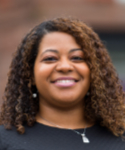 Jessica Young Brown
Jessica Young Brown
DIRECTOR
BARRY YOUNG CENTER FOR MINISTRY FORMATION
SAMUEL DEWITT PROCTOR SCHOOL OF THEOLOGY
VIRGINIA UNION UNIVERSITY
RICHMOND, VIRGINIA
Jessica Young Brown’s view of life after COVID-19 is informed by her training as a psychologist and her work helping clergy deal with the stresses of ministry.
But her belief that the pandemic has stirred us to find new ways to engage with other people and find peace within also stems from personal experience. Among her loved ones who contracted COVID-19 was a childhood friend in his 40s who died.
A year into the pandemic, Brown encourages us to consider these questions: “What are the things I really need to be OK? How can I be creative to really access those things?”
She believes that many of us are finding new answers. Neighbors are sitting in their yards, getting to know each other for the first time. Loved ones are picking up the phone and, rather than texting, finding comfort in a familiar voice. Clergy and educators are discovering they can shape lives virtually. With more time alone, we are learning to cherish the stillness.
The question, Brown said, bears repeating: “What are the things I really need to be OK?”
‘Clear and transparent’
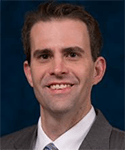 David P. King
David P. King
KAREN LAKE BUTTREY DIRECTOR
LAKE INSTITUTE ON FAITH & GIVING
INDIANAPOLIS, INDIANA
“Resiliency” is the word David King uses to describe the ways in which churches have adapted to life in a pandemic. That includes how -- and how much -- people give.
King, the Lake Institute’s director, said a survey of 555 faith communities in July 2020 found that 59% had sustained or increased member giving since COVID-19 shut down in-person church. Prior to the pandemic, 73% of churches already had the ability to accept virtual contributions. Of those that didn’t, 39% reported quickly adding that option.
But expanding digital giving platforms isn’t the only answer, King believes. Churches must continue to focus on how resources that are given by members support the congregation’s mission, even if that mission is different during the pandemic.
Churches, King said, must be “clear and transparent.” Is the church investing in technology and infrastructure to enhance online worship and other ministries? Are new curricula being placed on people’s doorsteps, since churchgoers likely won’t return to in-person Sunday school anytime soon?
With members unable to be on-site to see and hear all that the church is doing, King said, the message must be shared more clearly than ever, no matter the platform.
“It’s not enough just to have the technical ability,” he said. “You have to point the people to how their giving continues to align with their own values and the congregation’s mission.”
‘The greater good’
 Robert Rueda
Robert Rueda
BAPTIST STUDENT MINISTRY
UNIVERSITY OF TEXAS RIO GRANDE VALLEY
EDINBURG, TEXAS
Campus minister Robert Rueda saw students rise to the occasion this past year. If the pandemic teaches us anything, he said, it is that the future belongs to the young.
The main campus of the University of Texas Rio Grande Valley in Edinburg, Texas, is 25 miles from the U.S.-Mexico border. The university is home to 32,000 students, 91% of whom are Hispanic. A survey conducted in 2019 found that 44% of students were facing food insecurity.
Hearing the call to help their peers, Rueda said, two students organized the opening of The Coffee House in January, a campus gathering space for fellowship, worship, sandwiches, pastries and coffee -- pay what you can. A group of 30 other students had already launched the Live Healthy Initiative to help people embrace healthy practices -- exercise, diet, avoiding fast foods -- “taking care of the temple of God,” Rueda said.
It’s a small sampling, Rueda acknowledged. But it gives him hope that extends beyond the Rio Grande Valley. This pandemic, he said, should teach us to be ready for what he called “the next trial,” whatever it may be. Part of being ready, he said, means being prepared to turn to the young for leadership, inspiration and ideas.
“I’m highly optimistic that the greater good will come out of this,” Rueda said, “and the church will be stronger.”
‘How do we renew?’
 Paul Baxley
Paul Baxley
EXECUTIVE COORDINATOR
COOPERATIVE BAPTIST FELLOWSHIP
DECATUR, GEORGIA
We’re exhausted, Paul Baxley said. A year of figuring out how to produce a virtual service, care for the lonely on Zoom and inspire people to keep the faith when their loved ones are sick or dying has left us spent.
Baxley, the executive coordinator of a coalition of 1,400 churches, praises congregations for the agility they’ve shown since COVID-19 first cast its shadow. He believes churches have met their sacred obligations through innovation. Many have reached a new and broader audience through online worship offerings.
But, Baxley warns, the most challenging days lie ahead. The pandemic will not lift one fine day and suddenly allow churches to “turn back the clock,” as he put it.
The challenge will be to find a safe and effective blend of in-person and online ministry. To continue serving neighbors in need when you literally can’t extend a hand. To find new ways to keep Christians “coming back” on Sunday mornings from their easy chairs.
Innovation and flexibility can leave us weary. For Baxley, one year into the pandemic, the future is framed more by a question asked than by lessons learned.
“How do we renew energy and strength?”
‘A moral reckoning’
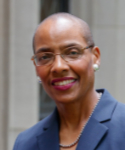 Kelly Brown Douglas
Kelly Brown Douglas
DEAN
EPISCOPAL DIVINITY SCHOOL
UNION THEOLOGICAL SEMINARY
NEW YORK, NEW YORK
Kelly Brown Douglas minces no words. Shame on the faith community as a whole, she said, for failing to address the second pandemic that COVID-19 has exposed, namely, the inequalities that afflict those who are racially and economically marginalized.
“This has happened on our watch,” said the dean of Episcopal Divinity School at Union Theological Seminary.
Unequal access to the vaccine and health care in general, a crisis in policing, the disproportionate impact of the pandemic on poor kids -- those are the issues that demand churches’ attention, Douglas said, chiding congregations that have placed their focus instead on beefing up livestream worship and online giving.
In just one such moral inequity, at-risk students are falling further behind during virtual learning. Many lack the necessary internet access, and many are home alone because not all parents have the luxury of working from their kitchen tables, she said. What’s keeping churches from welcoming children and youth to its typically empty classrooms during the week for encouragement and a snack?
The pandemic isn’t over; there’s still a chance for churches to rise up, Douglas said. “This is a moral reckoning. We don’t have options.”

